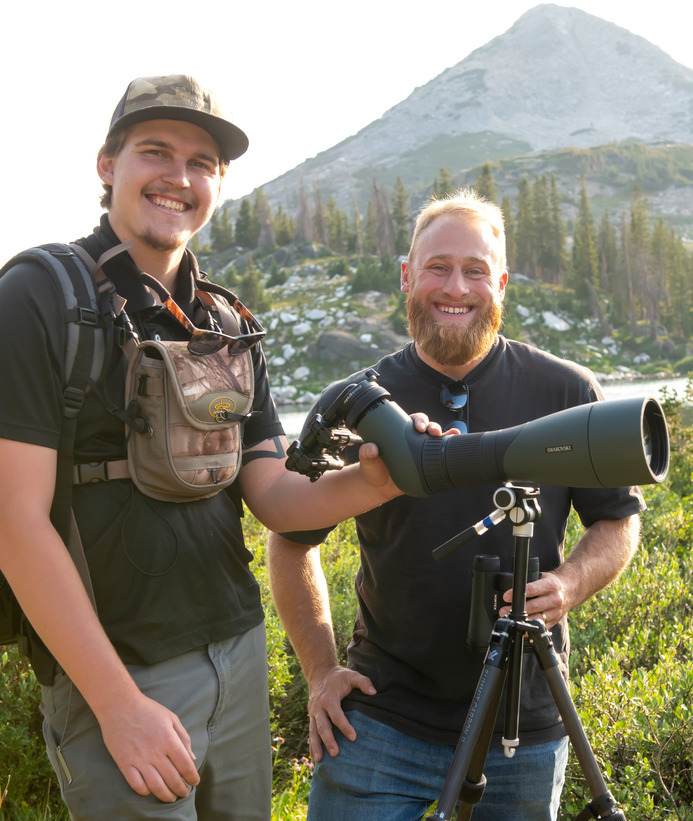About the Collaborative Practice Minor
The collaborative practice minor is one-of-a-kind, thanks to its positioning in UW’s
Haub School of Environment and Natural Resources. Students in this program learn to understand and address complicated natural resource
conflicts — and resolve them using collaboration, policy and scientific decision-making.
Graduate students take 12-credit-hours to achieve this minor. However, those credits
include a practicum course in which students complete an internship or fellowship
to gain hands-on experience.
Students must be enrolled in a graduate degree program to pursue a minor in collaborative practice.
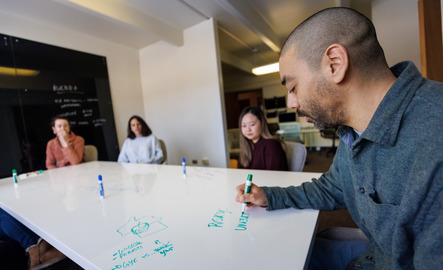
Dr. Melanie Armstrong, director of the Ruckelshaus Institute, leads UW’s collaborative practice minor.
Her research is highly interdisciplinary and often focuses on how societal systems
are built around shifting ideologies of nature.
She has collaborated with the United States Forest Service to study recreation users’
experiences and managers’ approaches to prescribed fire in wilderness. She also led
community engagement for the largest timber sale in the Gunnison National Forest.
As a 2020 National Geographic Explorer, she studied how Native American treaty rights
influence resource management, then developed a curriculum around co-management of
public lands and hosted a field school at Bears Ears National Monument.
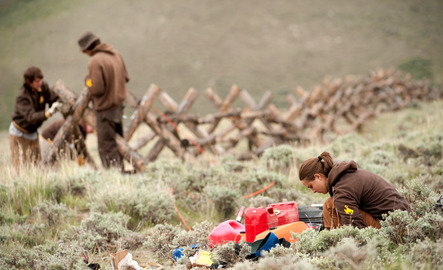
What can you do with a collaborative practice minor?
A collaborative practice graduate minor equips you with essential skills in negotiation, facilitation and consensus-building, preparing you for leadership roles that require cross-sector collaboration. This minor is particularly valuable in fields where complex, multi-stakeholder decision-making is essential.
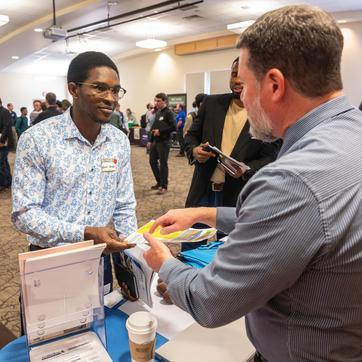
The collaborative practice minor is designed to provide students with skills in designing, organizing, facilitating and evaluating collaborative decision-making processes — regardless of their industry or career path. Specifically, you may benefit from this minor if you're pursuing a career in the following sectors:
- Public Affairs and Government
- Environmental and Natural Resource Management
- Nonprofit and Community Organizations
Although this is a new minor program, we’ve had graduates pursue exciting and impactful career opportunities in many different fields. One of our graduates is a Public Affairs Specialist for the USDA Forest Service in the Laramie Ranger District and another is a facilitator with The Langdon Group.
You'll take courses on negotiation and collaboration methods, in addition to electives that relate to specific contexts, like healthcare, education, business and more.
Collaborative practice is an approach to problem-solving that brings together people from different backgrounds, disciplines or sectors to work toward shared goals. It emphasizes communication, negotiation, facilitation and consensus-building, especially in situations where complex issues require input from multiple stakeholders. In professional settings, collaborative practice is used to address challenges in areas like environmental management, public policy, healthcare, education and community development. The goal is to create inclusive, sustainable solutions by valuing diverse perspectives and working cooperatively.
Ruckelshaus Institute
Students pursuing the collaborative practice minor have the opportunity to engage
with the Ruckelshaus Institute, a division of the Haub School of Environment and Natural
Resources at the University of Wyoming. The Ruckelshaus Institute has a rich history
of valuing collaboration, which began when William D. Ruckelshaus came to UW in 1993
to serve as the founding chairman of a new institute dedicated to collaborative problem
solving for natural resource challenges.
He was a proponent of bringing together diverse stakeholders, including different
kinds of people who would be affected by any management or policy decision. He encouraged
them to engage in civil discourse about desired outcomes for natural resource challenges.
His goal was to build inclusive, lasting decisions that would avoid future litigation.
Students in the collaborative practice minor have an opportunity to continue his legacy
by participating in Ruckelshaus projects — including working with the Emerging Issues
Forum, the Western Confluence Magazine and a variety of topical stakeholder driven
processes in the state and region.
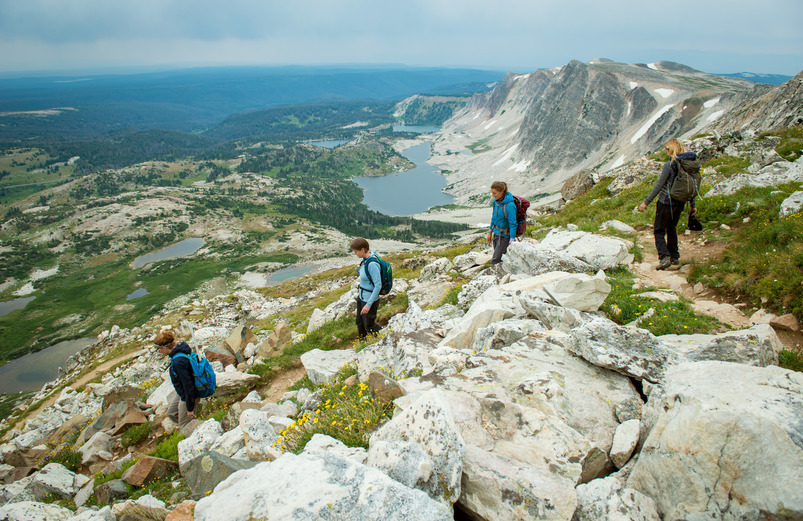
"I would not have gotten [a job in the facilitation field] without being in the ENRS program for two reasons. First, my boss was a guest speaker in Corrie Knapp's ENRS 5900 class and talked to us about natural resources facilitation. I then used my collaborative practicum to interview my boss, which made the connection. Second, taking Steve's facilitation class and the Collaborative Practice minor gave me the collaboration chops to feel confident going into the interview. I got that interview because I reached out to my boss while I was in the job search phase just trying to get some advice on applying to this field. She then responded, well we are hiring right now, you should apply! There was definitely a little bit of luck there, but because I made the connection in class, deepened my collaborative practicum, and solidified my skills with the Collaborative Practice Minor, I was able to get the job."
- Will Benkelman

